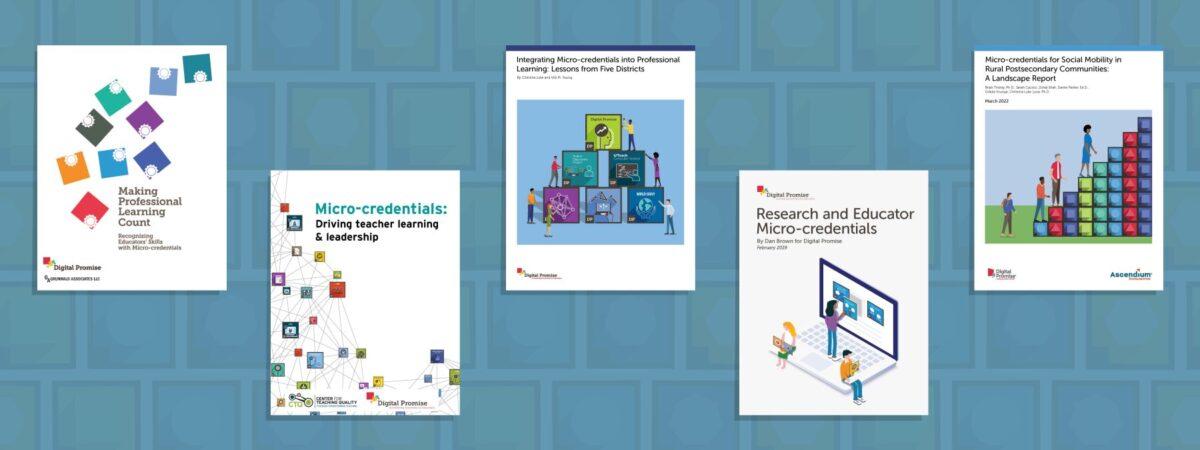Micro-Credentials Revolution: Transforming Professional Development for Today’s Workforce
Introduction: the Rise of Micro-Credentials
In an ever-evolving job market, the demand for continuous, effective professional development has never been greater. Conventional education models, while valuable, are struggling to keep pace with the rapid advancements in technology and shifting industry needs. Enter micro-credentials—a game-changing approach to workforce development that offers bite-sized, targeted learning opportunities. From digital badges to verified certificates, micro-credentials are now the cornerstone of modern career growth, empowering employees to upskill quickly and employers to recruit talent with verified, job-ready skills.
What Are Micro-Credentials?
Micro-credentials are short, focused certifications designed to validate specific skills, competencies, or knowledge. Unlike traditional degrees or diplomas,micro-credentials zero in on niche areas—think data analytics,project management,coding,or leadership—delivering practical,applicable learning without the lengthy commitment. These digital accreditations can be obtained through online courses, workshops, bootcamps, or even workplace training platforms.
- Digital Badges: Visual representations of skills earned online, easily shareable on LinkedIn and resumes.
- Stackable Certificates: Modular certificates that can be layered to build a broader qualification.
- Industry-Endorsed Credentials: certifications validated by leading employers or professional associations.
Why Micro-Credentials Are Transforming Professional Development
The micro-credentials revolution is upending traditional professional development by making learning more accessible, affordable, and relevant. Here’s how this trend is shaping the future of work:
Agility and Accessibility
- Fast Upskilling: Earn a new skill in weeks rather of years.
- No Geographic Limitations: Online platforms break down access barriers for global learners.
- Affordable Learning: most micro-credentials cost far less than formal degrees.
Employer Demand for Validated Skills
- Immediate Application: credentials align with current job needs—think cybersecurity or digital marketing.
- Verified Competence: Demonstrate mastery with digital badges employers trust.
Career Mobility and Lifelong Learning
- Stackable Pathways: Combine micro-credentials to open doors to new roles or industries.
- Personalization: Tailor learning to your career goals and schedule.
Benefits of Micro-Credentials for Today’s Workforce
The shift to micro-credentials offers important advantages for professionals and employers alike. Here’s why adopting this approach can give you a career edge:
- Flexibility: Learn at your own pace, choosing courses that fit your schedule—perfect for working professionals and busy teams.
- Targeted skill Development: Focus on areas most relevant to your job or career aspirations, helping you stay ahead of industry trends.
- Recognition and Portability: Easily share your achievements with potential employers via professional profiles and digital portfolios.
- Cost-Effective: Eliminate the financial barriers often associated with higher education and long-term programs.
- Enhanced employability: Employers value specific, validated skills—making micro-credentialed candidates more attractive in the hiring process.
Practical Tips: How to Leverage Micro-Credentials for Career growth
Ready to boost your professional development with micro-credentials? Here are actionable strategies you can implement today:
- Identify Skills Gaps: Assess your current role and industry to pinpoint areas of growth. Tools like LinkedIn Learning and Coursera offer insights on trending skills in your sector.
- Choose Accredited Platforms: Opt for reputable providers (edX, Udemy, Skillshare, IBM, Google, microsoft) whose certifications are recognized by employers.
- Create a Stackable Learning Path: Plan your micro-credentials to work toward a larger qualification or career pivot.
- showcase your Credentials: Add digital badges to your LinkedIn profile, resume, or personal website to demonstrate your commitment to learning.
- Network and Engage: Join online communities and forums where micro-credentialed professionals share insights and job opportunities.
- Stay Current: Upskilling is a continuous process—monitor industry news and enroll in new courses as needed.
case Studies: Micro-Credentials in Action
Success Story: IT Professional
Jane, a network administrator, wanted to diversify her skills in cybersecurity. Through IBM’s micro-credential program, she earned a digital badge in Network Security in just six weeks. Within three months, Jane secured a promotion and a salary increase, thanks to her verified, up-to-date skills.
Success Story: Marketing Specialist
Mark transitioned from traditional marketing to digital strategies by completing Google’s Analytics micro-credential. His newly acquired expertise led him to a consulting role, broadening his career horizon considerably.
Organizational Perspective: Financial Sector
major banks have incorporated micro-credential programs for staff, focusing on topics like fintech and compliance. The result? Reduced onboarding time, lower attrition rates, and a workforce ready for digital transformation.
First-Hand Experience: Voices from the Field
“Micro-credentials changed the way I learn and work—every new badge felt like a step closer to my career goals. Now,I’m seen as an innovator at my company.”
– Priya S., Project Manager
“I was able to pivot into a new industry by stacking micro-credentials—each one built my confidence and my CV!”
– Daniel T.,Data Analyst
How organizations Can Integrate Micro-Credentials
Forward-thinking companies recognize the value of micro-credentials in building a resilient and future-ready workforce. Here are proven ways to bring these programs into your association:
- Partner with Education Providers: Collaborate with online learning platforms to offer tailored micro-credential courses to employees.
- Create Incentive Programs: Reward staff who pursue accredited credentials with bonuses, promotions, or recognition.
- Embed Micro-Credentials into training: Make these certifications part of standard onboarding and continuous learning initiatives.
Conclusion: Your Next Step in Professional Development
The micro-credentials revolution is reshaping how professionals learn, grow, and adapt to a changing world of work. by embracing these accessible, focused certifications, individuals gain new skills faster, employers build more agile teams, and industries bridge the digital talent gap. Whether you’re aiming for a promotion, a career switch, or simply striving to stay relevant, micro-credentials are your ticket to continuous, targeted learning and recognized achievement.
Start exploring micro-credential opportunities today—ignite your professional development and join the future-ready workforce.

